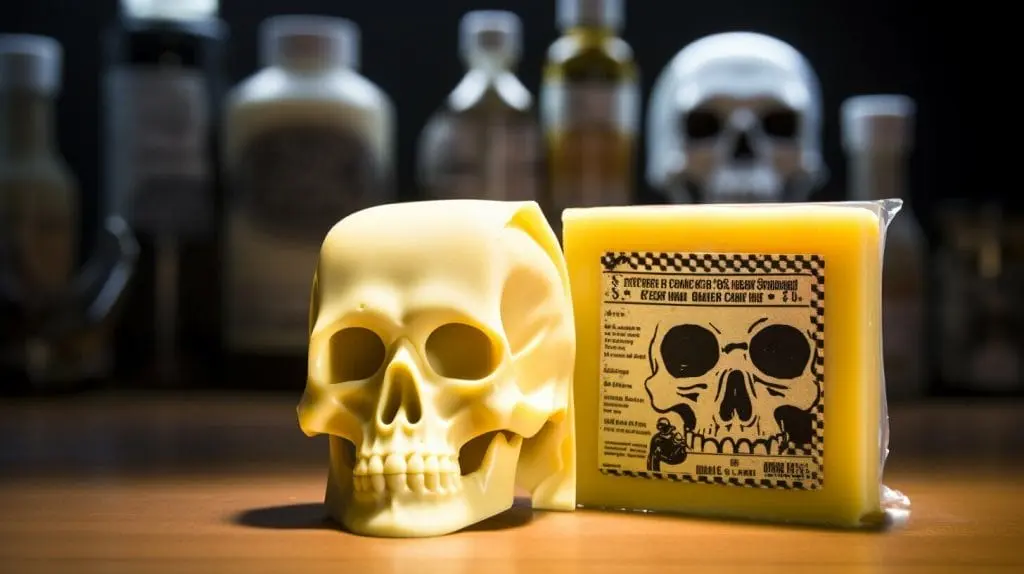Smoked cheese is a popular delicacy enjoyed by many people around the world. The smoky flavor and aroma add a unique twist to the taste of cheese. However, there have been concerns about the potential health risks associated with consuming smoked cheese. One particular concern is whether smoked cheese is carcinogenic.
The Smoking Process and Carcinogens
Smoking is a traditional method used to preserve and flavor food, including cheese. During the smoking process, the cheese is exposed to smoke from burning wood or other materials. This imparts the distinct smoky flavor onto the cheese. However, smoke contains various compounds, some of which may be potentially harmful to human health.
One of the main concerns regarding smoked cheese is the presence of polycyclic aromatic hydrocarbons (PAHs). PAHs are a group of chemicals that can form when organic matter, such as wood, is burned. Some PAHs are known to be carcinogenic, meaning they have the potential to cause cancer.
Nitrates in Smoked Cheese
Another factor to consider is the presence of nitrates in smoked cheese. Nitrates are commonly used as preservatives in many processed foods, including smoked meats and cheeses. They help prevent the growth of bacteria and extend the shelf life of these products. However, there has been some debate about the potential health risks of consuming nitrates.
While nitrates themselves are not carcinogenic, they can be converted into nitrosamines, which are known to be cancer-causing compounds. Nitrosamines can form when nitrates interact with certain amino acids, such as those found in protein-rich foods like cheese. However, the formation of nitrosamines can be minimized through proper food processing and cooking methods.
Minimizing the Risks
It's important to note that the potential health risks associated with consuming smoked cheese are relatively low. The amounts of PAHs and nitrosamines found in smoked cheese are generally considered to be within safe limits. However, it's still advisable to take some precautions to minimize any potential risks.
- Choose smoked cheeses that are made using natural smoking methods. Avoid cheeses that are artificially smoked or treated with liquid smoke, as these may contain higher levels of harmful compounds.
- Opt for organic or artisanal smoked cheeses that are made using high-quality ingredients and traditional smoking techniques. These cheeses are likely to have lower levels of additives and contaminants.
- Enjoy smoked cheese in moderation as part of a balanced diet. Variety is key when it comes to maintaining a healthy eating pattern.
Is smoked cheese safe to eat?
Yes, smoked cheese is generally safe to eat. The potential health risks associated with consuming smoked cheese are relatively low, as long as it is consumed in moderation and as part of a balanced diet.
Are there any alternatives to smoked cheese?
If you are concerned about the potential health risks of consuming smoked cheese, there are plenty of other delicious cheese options available. You can try different types of unsmoked cheese that offer a variety of flavors and textures.
Can smoking cheese at home be dangerous?
Smoking cheese at home can be safe if proper precautions are taken. It's important to use a well-ventilated area or an outdoor smoker to prevent the buildup of smoke indoors. Additionally, ensure that the wood or materials used for smoking are free from harmful chemicals or contaminants.

In Conclusion
While there have been concerns about the potential health risks of consuming smoked cheese, the evidence suggests that the risks are relatively low. By choosing high-quality, naturally smoked cheeses and enjoying them in moderation, you can still savor the unique flavors of smoked cheese without compromising your health.
If you want to know other articles similar to Is smoked cheese carcinogenic? exploring health risks and safety you can visit the Food safety category.


Related Articles